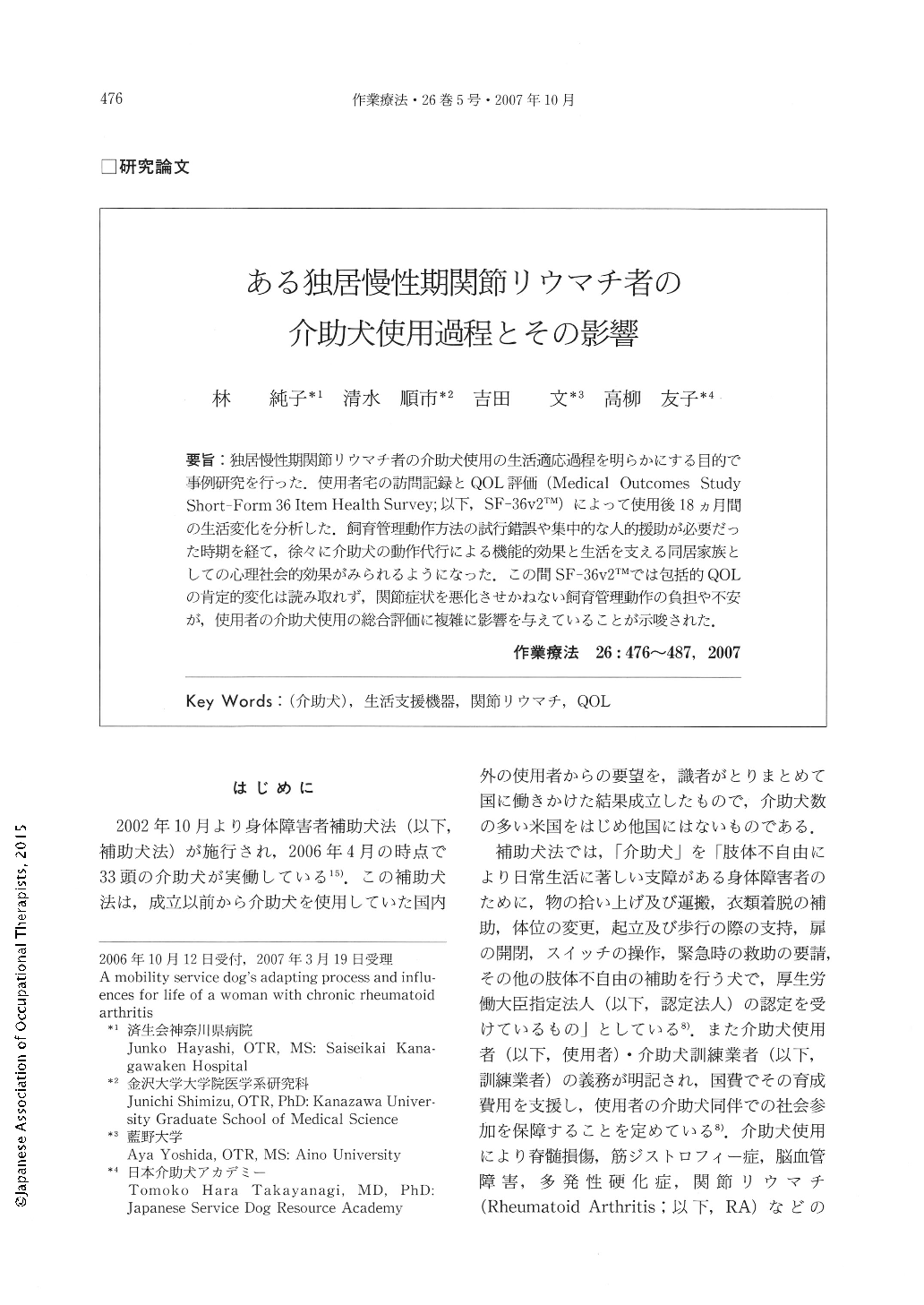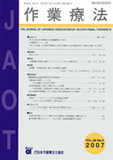Japanese
English
- 販売していません
- Abstract 文献概要
- 1ページ目 Look Inside
- 参考文献 Reference
- サイト内被引用 Cited by
要旨:独居慢性期関節リウマチ者の介助犬使用の生活適応過程を明らかにする目的で事例研究を行った.使用者宅の訪問記録とQOL評価(Medical Outcomes Study Short-Form 36 Item Health Survey;以下,SF-36v2TM)によって使用後18ヵ月間の生活変化を分析した.飼育管理動作方法の試行錯誤や集中的な人的援助が必要だった時期を経て,徐々に介助犬の動作代行による機能的効果と生活を支える同居家族としての心理社会的効果がみられるようになった.この間SF-36v2TMでは包括的QOLの肯定的変化は読み取れず,関節症状を悪化させかねない飼育管理動作の負担や不安が,使用者の介助犬使用の総合評価に複雑に影響を与えていることが示唆された.
This is a descriptive case study of a service dog user who was in a chronic stage of RA and was living alone. Writing notes about weekly visits, and evaluating SF-36v2TM for 18 months, I analyzed the process of her adapting to her new life with a mobility service dog. The process was divided into four stages: difficulty stage, retraining stage, retrial stage, and stable stage. In the retraining stage, the user needed modifying with regard to daily care and the volunteer's help to ease care burden of the dog. Consequently, she gained functional and psychosocial control of using the dog. SF-36v2TM showed that there was no significant change on QOL. It might have indicated that the dog-care burden had an effect on the total value of the service dog.

Copyright © 2007, Japanese Association of Occupational Therapists. All rights reserved.


